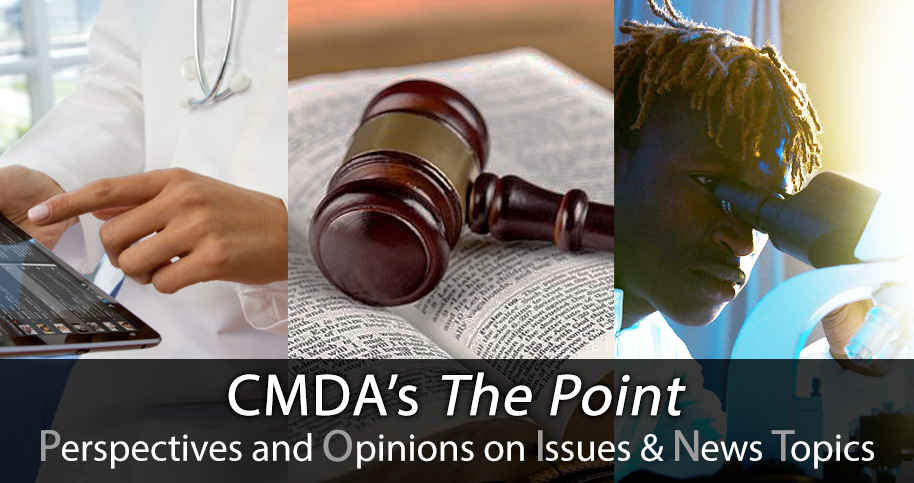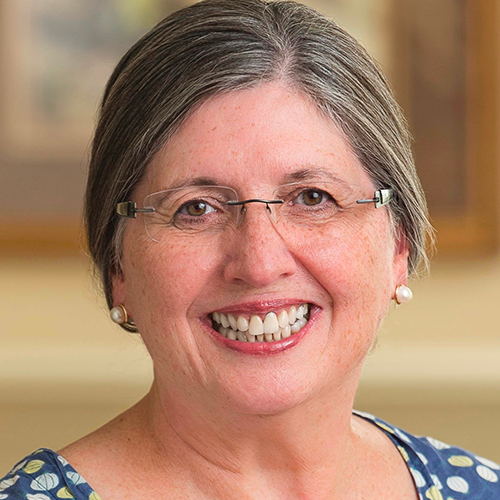
The Point Blog ARCHIVE
All articles found in the archive are more than three years old.
The purpose of this blog is to stimulate thought and discussion about important issues in healthcare. Opinions expressed are those of the author and do not necessarily express the views of CMDA. We encourage you to join the conversation on our website and share your experience, insight and expertise. CMDA has a rigorous and representative process in formulating official positions, which are largely limited to bioethical areas.
Genome Editing: Social and Ethical Issues
August 16, 2018
by D. Joy Riley MD, MA (Ethics)
The Nuffield Council on Bioethics, established in 1991, is an independent body whose mission is to “identify, examine and report on the ethical questions raised by recent advances in biological and medical research.”
It is funded not only by the Nuffield Foundation but also the Wellcome Trust and the Medical Research Council of the United Kingdom. On July 17, 2018, the Nuffield Council released its report on “Genome Editing and Human Reproduction: Social and Ethical Issues.”
The report lists several situations in which genome editing would be desired in order to have a genetically related child who did not have a given condition. In some cases—such as Huntington’s disease in one parent, or sickle cell anemia or cystic fibrosis in both parents—genome editing is described as “the only option.” Other cases were described generally as ones in which it is “possible but very difficult to achieve the birth of a genetically related child with desired characteristics using alternative approaches.” The third category was the possible future use of genome editing for:
- Building in resistance or immunity to a disease;
- Increasing tolerance to environmental conditions; or
- Enhancing senses or abilities.
While it was the last category of use of genome editing that sparked media interest and cultural buzz (and for good reason), several other inclusions in the Nuffield Council’s report merit our attention. The advisory body included in its report this important fact: “One of main reasons that it is hard to predict how useful genome editing will be is that we do not have a full understanding of how the genome functions.” Hmm, although our understanding is limited, and “drawing insights from vast amounts of data will be a challenge,” it is okay to proceed with editing the DNA of future generations that cannot give consent?
On another front, the Nuffield Council recognizes that attitudes and opinions of the public will have some effect on the project of genome editing, and they acknowledge the need for “broad and inclusive societal debate.” One possible result is the birth of fewer persons with disabilities and, consequently, less acceptance of those persons and even discrimination and stigmatization of affected individuals.
Does the Nuffield Council on Bioethics therefore plan to ask persons with disabilities about their opinions regarding lessening the birthrate of people like themselves? Will these persons be part of the “broad and inclusive” debate? I suggest the august advisory body start the conversation with Heidi Crowter. She would likely be happy to have some input.
Among other areas of concern, the Nuffield Council on Bioethics had this to say: “We recommend that arrangements should be put in place to monitor the effects of heritable genome editing interventions on those who might be adversely affected; and there should be measure to require periodic review of authorisation of the procedures and to trigger a moratorium if necessary.” Are there limitations to the monitoring of effects of genome editing? Once a person’s genome has been edited (again, without his/her consent), what portions of his/her life will be monitored, and for how long? What level of privacy can such a research subject expect?
C.S. Lewis was prescient in The Abolition of Man: “For the power of Man to make himself what he pleases means…the power of some men to make other men what THEY please.”

